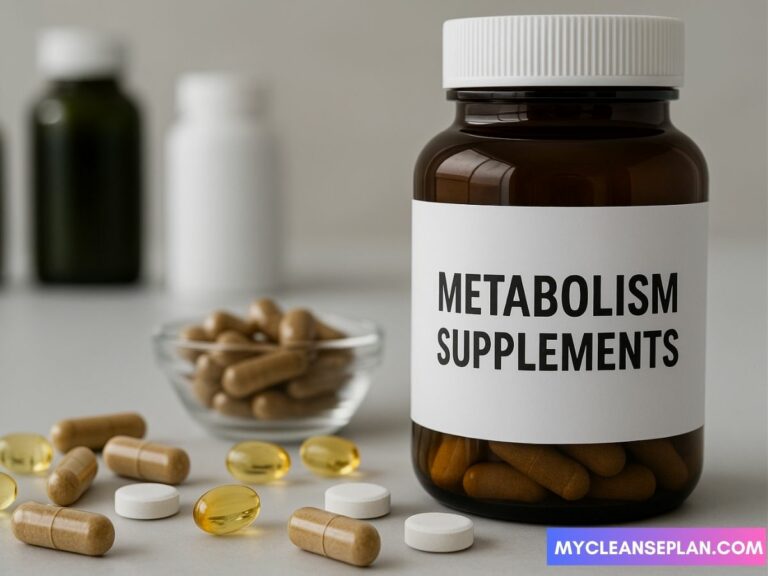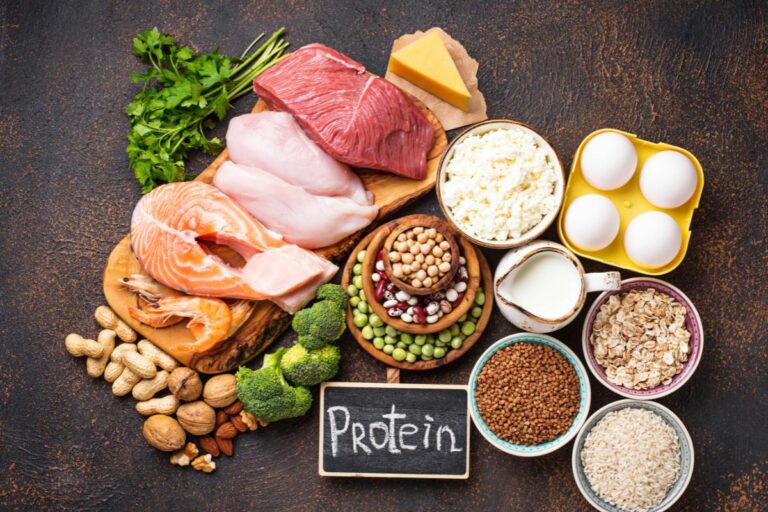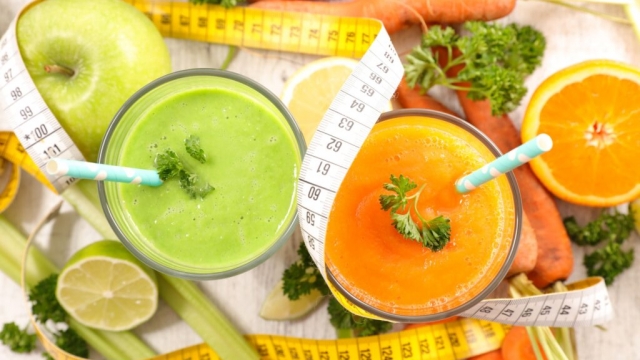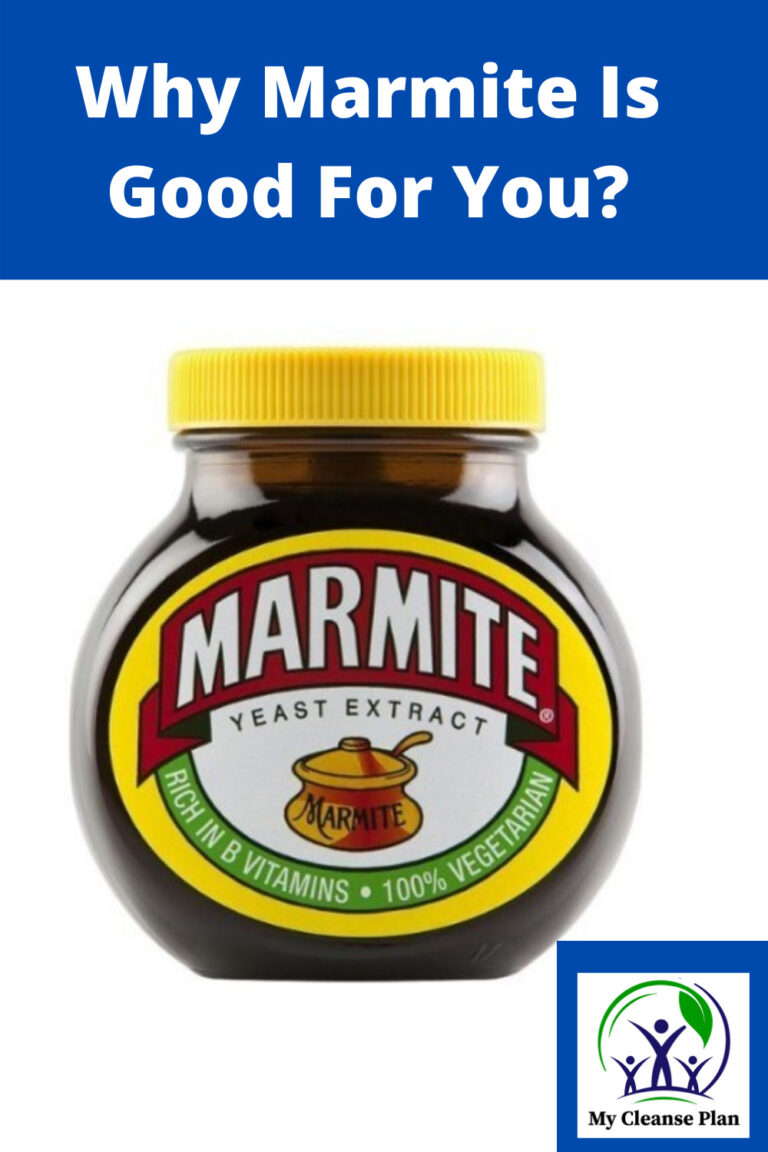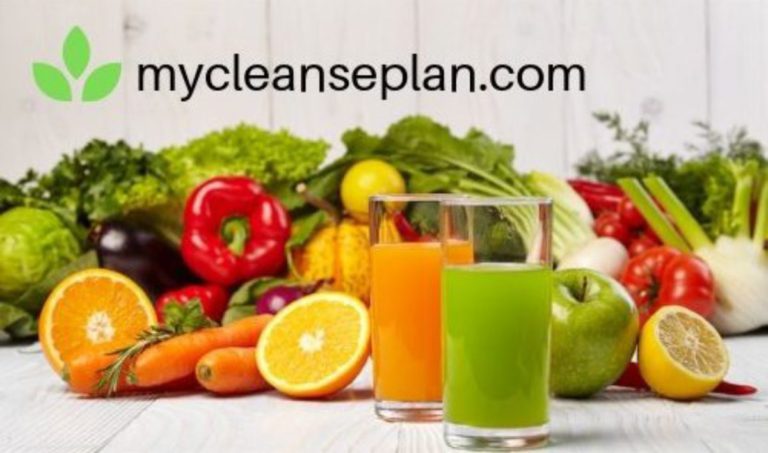Nutritional Support During A Detox Cleanse
Nutritional support during a detox cleanse is essential to maintain the body’s vital functions while facilitating the removal of toxins.
Key Takeaway
- Prioritize nutrient-dense foods to provide essential vitamins and minerals during a detox cleanse.
- Stay hydrated by drinking plenty of water and herbal teas to support toxin elimination.
- Incorporate probiotic-rich foods to promote gut health and enhance the body’s natural detox processes.
- Avoid processed foods, sugar, and alcohol to optimize the benefits of the cleanse.
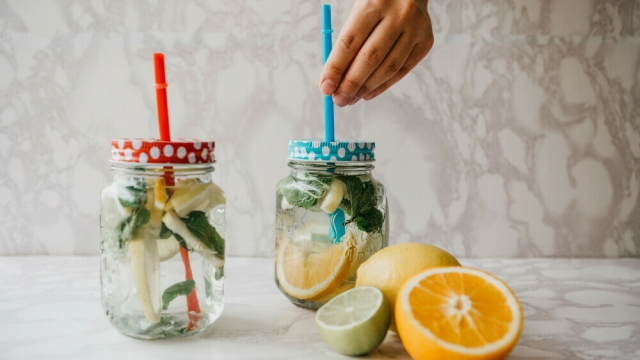
Detoxification, more commonly referred to as a detox, is a term you’ve likely heard tossed around in health circles. It’s the process where one aims to rid their body of toxins. The idea itself isn’t new; various cultures have practiced forms of detoxification for centuries, often as part of traditional health rituals.
Why consider a detox? For some, it’s a means to jumpstart a healthier lifestyle, while for others, it could be a way to reset their system after a period of overindulgence. The potential benefits range from improved energy levels to better digestive health. However, it’s essential to approach detox with a balanced perspective, as improper practices can lead to more harm than good.
That’s where nutritional support steps in. It forms the pillar of a successful and healthful detox. By ensuring your body gets the necessary nutrients, you’re not only promoting the removal of unwanted substances but also supporting your overall well-being. So, as we unfold the layers of a detox cleanse, keep in mind the critical role that proper nourishment plays & My Cleanseplan.
Related Article: Why Should I Cleanse Before Going on a Diet – For Better Results
The Role of Nutrition in Effective Detoxification
I want to clarify the often misunderstood role of nutrition in the detoxification process. Your body is well-equipped with its own detox machinery, primarily your liver and kidneys. These organs work tirelessly to filter out toxins from your bloodstream.
However, what if I said you could help your body become even more efficient at this? It’s true. By providing your body with the right nutrients, you’re essentially giving it the tools it needs to carry out detoxification more effectively.
It’s crucial to understand that a lack in certain nutrients can hinder your body’s ability to detoxify. If your diet doesn’t support these detox pathways, it’s like expecting a car to run without gas – it’s not going to work well.
To help your detox be successful, focus on nutrients that bolster these pathways. For instance, antioxidants such as vitamins C and E help protect your cells against oxidative stress caused by toxins. B-vitamins are necessary for transforming toxins into less harmful substances that can be excreted.
Moreover, minerals like zinc and selenium play a key role in supporting detoxifying enzymes. Amino acids from protein sources are also critical, as they aid in the formation of substances like glutathione – a powerful detoxifying agent within your cells.
Now, with this foundation, you’re ready to plan your detox cleanse. Up next, I’ll guide you through a step-by-step process to create a personalized detox plan—keeping your nutrition front and center to ensure your detox supports, rather than strains, your overall health.
Related Article: Fatty Liver Diet Plan – Detox Your Liver Naturally
Planning Your Detox Cleanse: A Step-by-Step Guide
Embarking on a detox cleanse is not something you do on a whim. It requires thoughtful planning and consideration of your body’s nutritional needs. Imagine your body as a complex machine that needs the right type of fuel to run efficiently. In the context of a detox, the goal is to remove toxins while ensuring that you’re replenishing your system with essential nutrients.
Start by assessing your current dietary habits. Are you getting enough fruits and vegetables? Is there an over-reliance on processed foods? This self-assessment will give you a clearer idea of what changes you need to make. Remember, your detox plan isn’t about depriving yourself, but rather about nourishing your body more mindfully.
A critical aspect of making your detox successful is setting achievable goals. This means choosing a time frame that works for you, whether it’s a three-day refresh or a week-long cleanse. Ensure that your goals align with your lifestyle and commitments. This approach will help you avoid feeling overwhelmed and increase the likelihood of following through with your plan.
The foundation of your detox should be a balanced mix of nutrients. Carbohydrates, proteins, and fats are all vital; the idea is not to eliminate them but to choose high-quality sources. Whole grains, lean proteins, healthy fats, and, most importantly, an abundance of fruits and vegetables should form the bulk of your intake.
Hydration is also a key player in any detox. Water supports the kidneys and liver, the body’s detoxifying powerhouses, and helps flush out toxins. Aim to drink plenty of water throughout the day. If plain water doesn’t excite you, consider adding slices of fruit or a dash of lemon for flavor.
Last but not least, plan for adequate rest and sleep while detoxing. Your body repairs itself during sleep, which is essential for a successful cleanse. By following these steps, you’re not only supporting your body through the detox but setting the stage for healthier eating habits beyond the cleanse.
Related Article: All Natural Body Detox Products – Detox Gold & Toxi-Clean Gold

Top Foods and Nutrients to Include in Your Detox Diet
During a detox cleanse, your body works overtime to flush out toxins, which is why fueling it with the right nutrients is crucial. Think of your body as a complex machine that needs the proper type of gasoline to run efficiently. Selecting foods that are rich in vitamins, minerals, and other essential nutrients helps support your body’s detoxification engines, such as your liver and kidneys.
For starters, let me highlight the cornerstones of a detox-supportive diet: green leafy vegetables, fresh fruits, and ample hydration. These are packed with chlorophyll, which helps cleanse your blood, and fiber that assists in moving toxins out of your body. Vegetables like spinach, kale, and broccoli are excellent choices.
You can’t ignore the power of antioxidants. They help neutralize potentially damaging free radicals that can be released during the detox process. Berries, nuts, and seeds are antioxidant powerhouses. Not only do they combat oxidative stress, but they’re also delicious and versatile.
Detox plans often emphasize the importance of anti-inflammatory foods. Inflammation can interfere with your body’s detox pathways, so incorporating foods like turmeric, ginger, and fatty fish, which are rich in omega-3s, supports overall health and aids the detox process.
Don’t forget about the importance of hydration. Water is essential for detox because it helps flush toxins through your system. Aim for at least 8 glasses of water a day, and don’t hesitate to sip on herbal teas or dilute fresh juices for variety.
Lastly, give your body a digestive aid with foods high in fiber. Think of fiber as a broom for your digestive tract, sweeping up waste and promoting its exit. Apples, chia seeds, and legumes are fantastic fibrous options.
Now that I’ve shared some leading characters in the detox nutrition lineup, let’s shift our focus in the next section to what should be avoided. You’ll find that steering clear of certain foods and habits is just as essential for a successful cleanse.
Related Article: Maximum Slim Reviews – Detox Kit

Common Pitfalls to Avoid During Your Detox Journey
It’s appealing to look for the quickest path to wellness. Yet a detox cleanse isn’t a race. It’s a process that commands respect for your body’s limits. When embarking on a detox journey, steering clear of certain traps can make all the difference in achieving a healthy balance.
One major pitfall is overly restrictive diets. They promise rapid results but can be counterproductive, depriving your body of essential nutrients and leaving you feeling weak. Remember, your goal is to nourish, not to starve.
Next on the list of concerns is imbalanced nutrient intake. It’s tempting to get carried away with certain foods and supplements, thinking more is better. However, moderation and variety are key. Overloading on a single nutrient can be just as harmful as a deficiency.
Another trap is ignoring your body’s signals. If your energy dips, or you experience adverse symptoms, your diet may need tweaking. Neglecting these signs can lead to greater health issues mycleanseplan.
Lastly, quick fixes like ‘miracle’ supplements or intensive cleanses might seem alluring, but they can wreak havoc on your system. A successful detox is one that supports your body’s needs without causing stress or harm.
As your detox journey progresses, it sets the stage for your future dietary habits. Keep in mind that the true purpose of a detox is to reset and establish a pattern of healthier eating that you can maintain over time.

Maintaining Nutritional Balance Post-Detox: Tips and Tricks
Completing a detox cleanse is just the beginning of a journey toward better health. It’s crucial to carry forward the good habits developed during the detox. A gradual transition back to a balanced diet ensures you don’t overwhelm your system Mycleanseplan.
Make it a priority to listen to your body. Be attentive to how it reacts to different foods and adjust your eating plan to support overall well-being. This might mean continuing to include certain ‘cleanse-friendly’ foods or sticking to a reduced intake of processed substances.
Explore Also:
Creativehouseblog
Dietsheriff
Gigasecurehome
Variety in your diet is key. Embrace a rainbow of fruits and vegetables, lean proteins, whole grains, and healthy fats. This doesn’t just keep your meals interesting; it provides a broad spectrum of nutrients your body needs to function optimally.
Remember, the goal isn’t just to ‘detox’ for a period but to cultivate a sustainable lifestyle. Small, consistent changes like staying hydrated, getting enough sleep, and regular physical activity go a long way. These actions reinforce your detox efforts and support lasting health.
Lastly, don’t hesitate to seek guidance from a healthcare professional or a registered dietitian. Their expert advice can help tailor a nutrition plan that aligns with your specific health goals and needs after a detox cleanse.

